Lesson 1: Bustling bird trading in the heart of the city
Recently, the trading of wild birds (WBC), including many rare species, has been taking place at bird trading locations and on social networks. This situation not only violates the law but also seriously affects biodiversity and poses a potential risk of disease to humans.
Rare birds for sale
Walking around the main roads in Di An City, we noted that there are more than a dozen establishments selling ornamental birds. The types of birds sold here are very diverse, from common birds such as bulbuls, magpies, etc. to rare birds such as parrots, thrushes, babblers, goldfinches, etc. These types of birds are sold for prices ranging from a few hundred thousand dong to tens of millions of dong per bird.
In the role of bird “players”, we went to the Nh. Q. bird shop on Nguyen Thi Minh Khai street (Chieu Lieu quarter, Tan Dong Hiep ward) to buy parrots to practice speaking. The shop owner said that parrots had been out of stock for a while because it was not “seasonal”. Seeing us looking closely at the bird cage, the shop owner immediately introduced: “This bird is related to parrots, looks cute and is popular with many people. This bird is also easy to raise, its main food is fruit. If you like it, I will keep it for a low price”. Seeing us hesitate, the shop owner continued to introduce the birds for sale here such as red-whiskered bulbuls, turtle doves, and magpies…
The owner of a bird shop on Huynh Van Luy Street (Phu My Ward, Thu Dau Mot City) sells each parrot for 2 million VND.
Also on this route, we noted that there are 2 bird shops, selling many species of CHD along with food and bird cages to serve the "bird players". In particular, some bird shops on this route also organize "bird singing - fighting" competitions for bird keepers to "interact" with each other.
We continued to an unnamed bird shop on Huynh Van Luy Street (Ward 6, Phu My Ward, Thu Dau Mot City) to buy singing starlings to “entertain the house”. In a kiosk of about 30 square meters , this shop sells many species of birds with hundreds of birds kept in cages of various sizes and colorful colors. When people came in, the birds in the cages were frightened and flew around, screaming loudly.
Receiving us, the shop owner said that there was only one starling left, if we “liked” it, he would leave us 2.2 million VND. Seeing that the price was too “expensive”, we asked to buy a parrot, and he said he had 6 left, priced at 2 million VND each. “This parrot is easy to raise. If you train it regularly, it will learn to talk in about 8 months”, the shop owner promised.
When we went to the bird shop on 3-2 Street (Dong Tu Quarter, Lai Thieu Ward, Thuan An City) to ask to buy parrots, the shop owner said that they sold parrots but due to the hot weather, they had all died. The shop owner suggested that we switch to "playing" with parrots because they can "imitate" human voices, not inferior to parrots. After that, this man opened the carton box in front of him and immediately there were 3 "young" parrots jumping up with their mouths open, waiting to be fed. This man offered 1.6 million VND per parrot, if we "closed" all 3, we would "lose some of our fortune".
The buying and selling of CHD takes place not only at bird shops but also on social networks. Through the Facebook search engine, we found many “open” groups about CHD and ornamental birds with thousands of members. To “bypass” the authorities and Facebook’s “censorship” policy, members of these groups often use the words “conservation”, “exchange”, “transfer”… to refer to the buying and selling of ornamental birds and CHD. In the group “Ben Cat Ornamental Bird Association” with 6,400 members, many members post articles selling ornamental birds from common to rare species.
On April 5, a Facebook account named Tran Duy Thanh posted on this group with the content of "transferring" a pair of male black-headed and silver-cheeked thrushes that had been "bred" for 1 month in a cage for 2.6 million VND. Immediately after that, the post attracted many members to interact and negotiate the price of "transferring" the pair of black-headed and silver-cheeked thrushes.
Similarly, on the group “ Binh Duong Ornamental Bird Association”, in addition to sharing experiences in raising and caring for ornamental birds, many members also take the opportunity to advertise and sell ornamental birds such as parrots, red-whiskered bulbuls, starlings, etc. After many days of monitoring ornamental bird groups, we have noticed that members often use “fake” accounts to buy and sell ornamental birds. There are even species listed as precious and rare, protected by law and restricted from exploitation and use for commercial purposes. In each post advertising the sale of ornamental birds, members of the group often discuss privately to agree on the selling price and the time and place of delivery of the birds.
According to the Centerfor Education for Nature (ENV), taking advantage of the convenience of the internet, many subjects have been openly advertising and trading wildlife on social networking sites such as Facebook, TikTok and YouTube to make illegal profits. In fact, most subjects advertising and trading endangered, precious and rare wildlife on cyberspace are aware that this is a violation of the law. However, high profits and low risks have caused violations to increasingly explode on the internet as they are today. In just 5 years (2017-2021), ENV has recorded more than 6,300 cases with signs of wildlife violations on the internet, accounting for more than 54% of the total number of violations in this period. As of July 12, 2022, ENV has recorded 1,862 wildlife violations, of which 53% were detected in cyberspace with 985 cases. |
May be subject to criminal prosecution
According to lawyer Mai Tien Luat, Director of Bigboss Law Firm (Binh Duong Bar Association), Vietnam has many regulations on the protection of wild animals (WWI), including CHD species. The purchase, transportation, storage, use and possession of wildlife species in the list of endangered, precious and rare species prioritized for protection are prohibited and considered violations of the law. This is clearly stated in Article 244 of the 2015 Penal Code (amended and supplemented in 2017), violations related to the protection of wildlife can be handled with forms such as fines, imprisonment from 1 month to 5 years. In addition, the act of hunting animals in the list of endangered, precious and rare species prioritized for protection is subject to an administrative penalty of 1 million to 50 million VND. Depending on the type of animal hunted, whether it is a common wild animal or an endangered, precious, rare wild animal and its value, the penalties will be different.
“To ensure compliance with the law on wildlife protection, the government needs to have strict management and control measures for the trading of ornamental birds. In addition, the authorities need to strengthen monitoring and inspection activities to detect and handle violations. If the regulations on wildlife protection are fully implemented, it will help protect CHD species from illegal hunting, trading and possession,” added lawyer Mai Tien Luat. (To be continued)
On January 22, 2019, the Government issued Decree 06/2019/ND-CP on the management of endangered, precious and rare forest plants and animals and the implementation of the Convention on International Trade in Endangered Species of Wild Fauna and Flora (hereinafter referred to as Decree 06). Decree 06 clearly stipulates the list of endangered, precious and rare forest plants and animals, including Group I and Group II. Group I is the species of forest plants and animals that are threatened with extinction, and are strictly prohibited from exploitation and use for commercial purposes. Meanwhile, Group II is the species of forest plants and animals that are not threatened with extinction but are at risk of being threatened if not strictly managed and exploitation and use for commercial purposes are restricted. Notably, in the list of endangered, precious, and rare wild animals (issued with Decree 06), the bird class includes the barracuda, silver-eared goldfinch, red-billed goldfinch, grey-cheeked black-crowned laughingthrush, parrots of the genus Psittacula, falcons, falcons, etc. in group IIB. These are bird species that are often sold openly at pet bird establishments and on social networks. Not only that, the act of illegally advertising and trading wild birds (not endangered, precious, or rare species) can also be fined from 1 to 1.5 million VND according to the provisions of Article 16 of Decree 35/2019/ND-CP dated April 25, 2019 of the Government regulating administrative sanctions in the forestry sector (amended and supplemented by Decree 07/2022/ND-CP). |
NGUYEN HAU
Source link


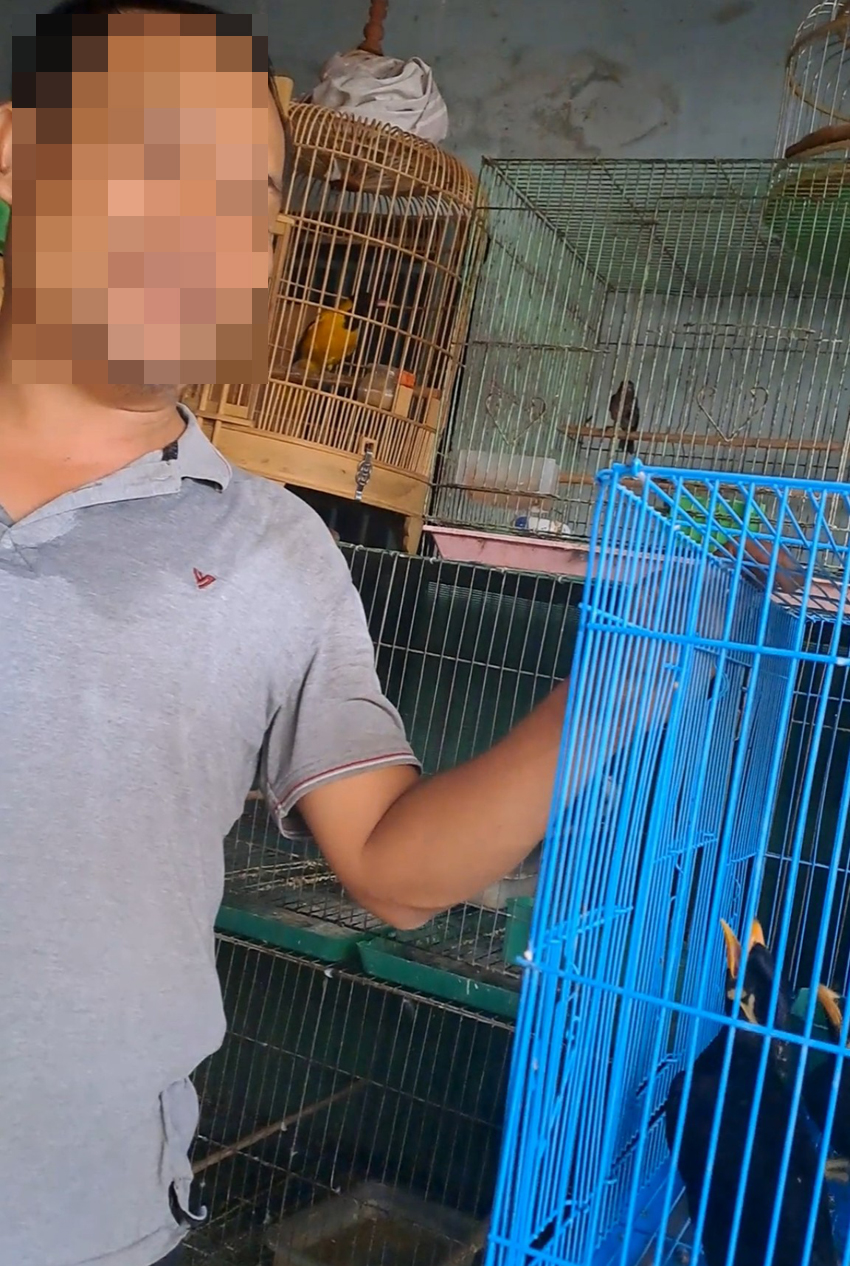
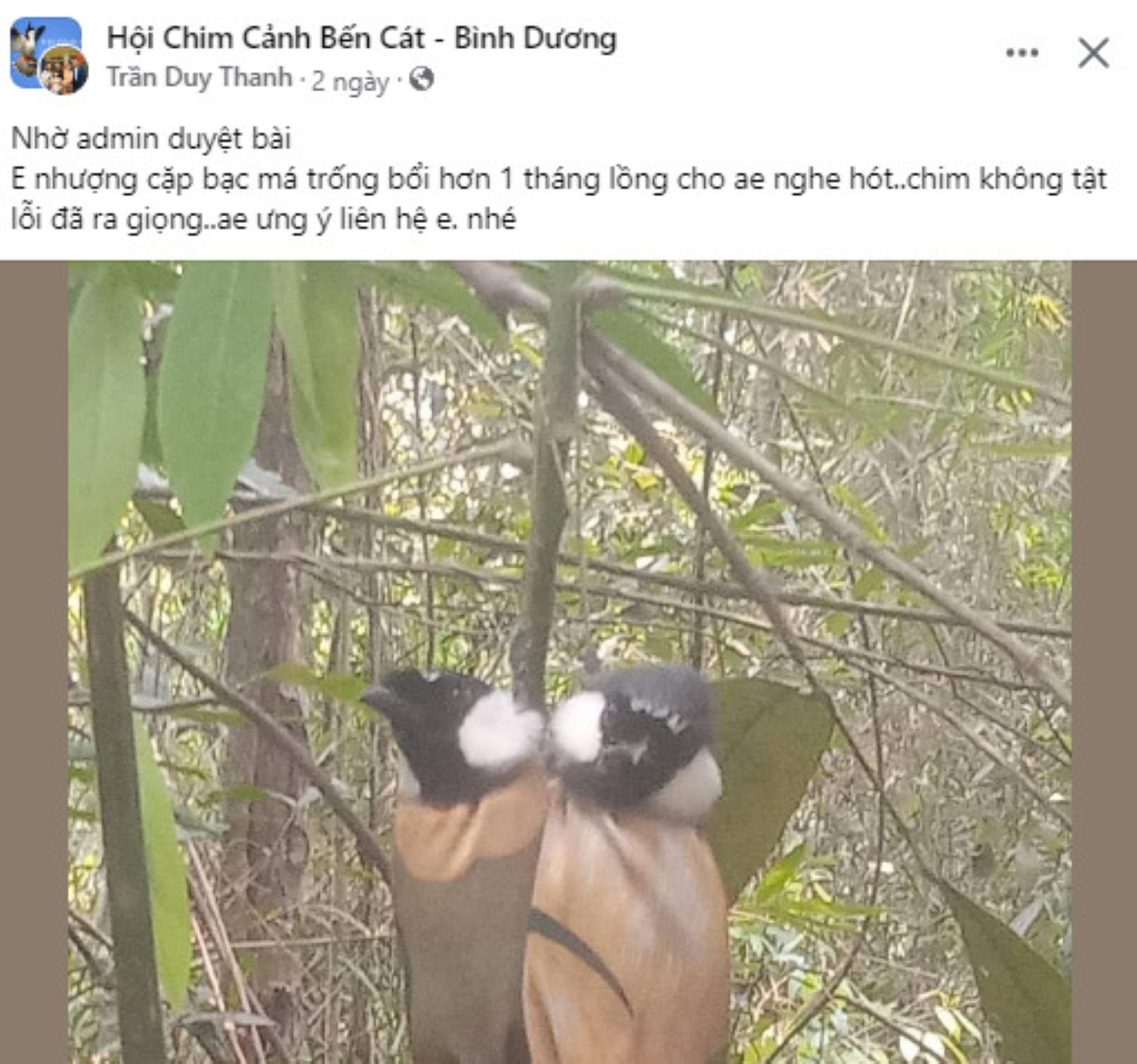
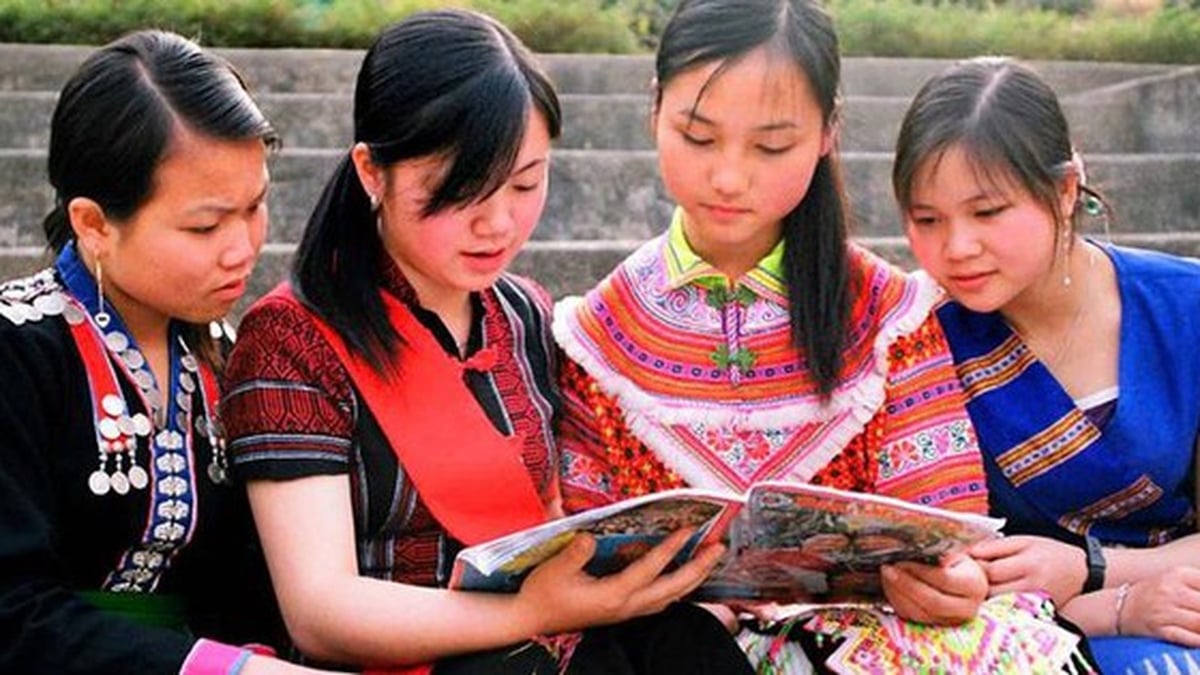



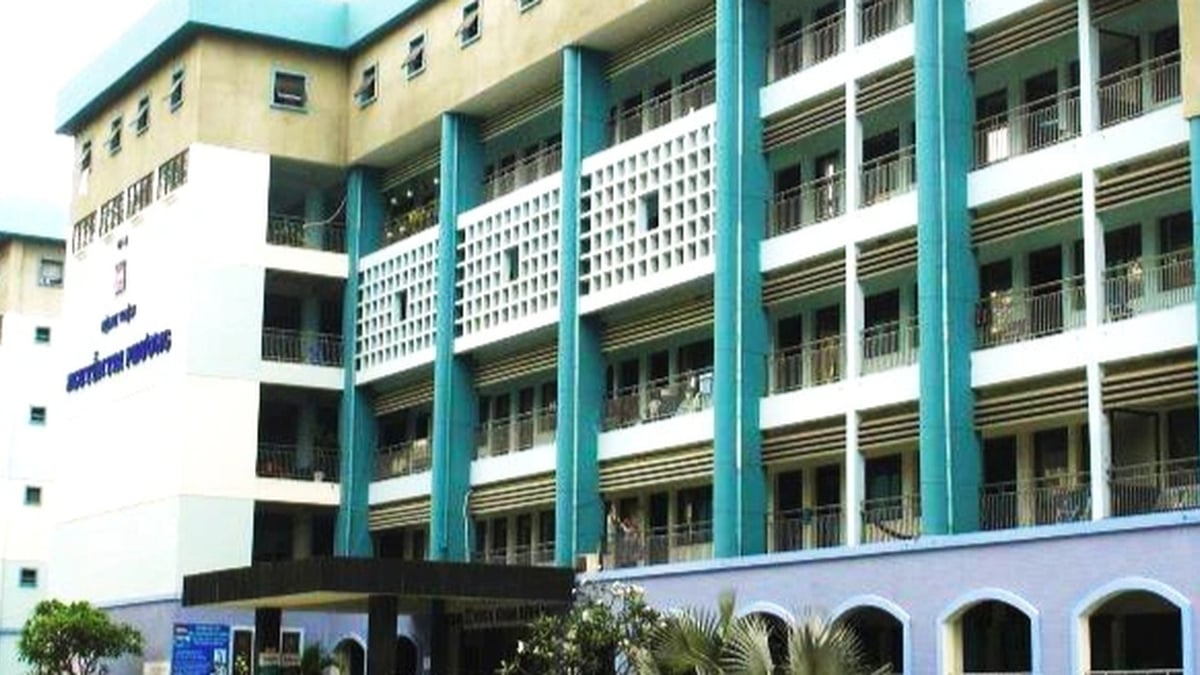
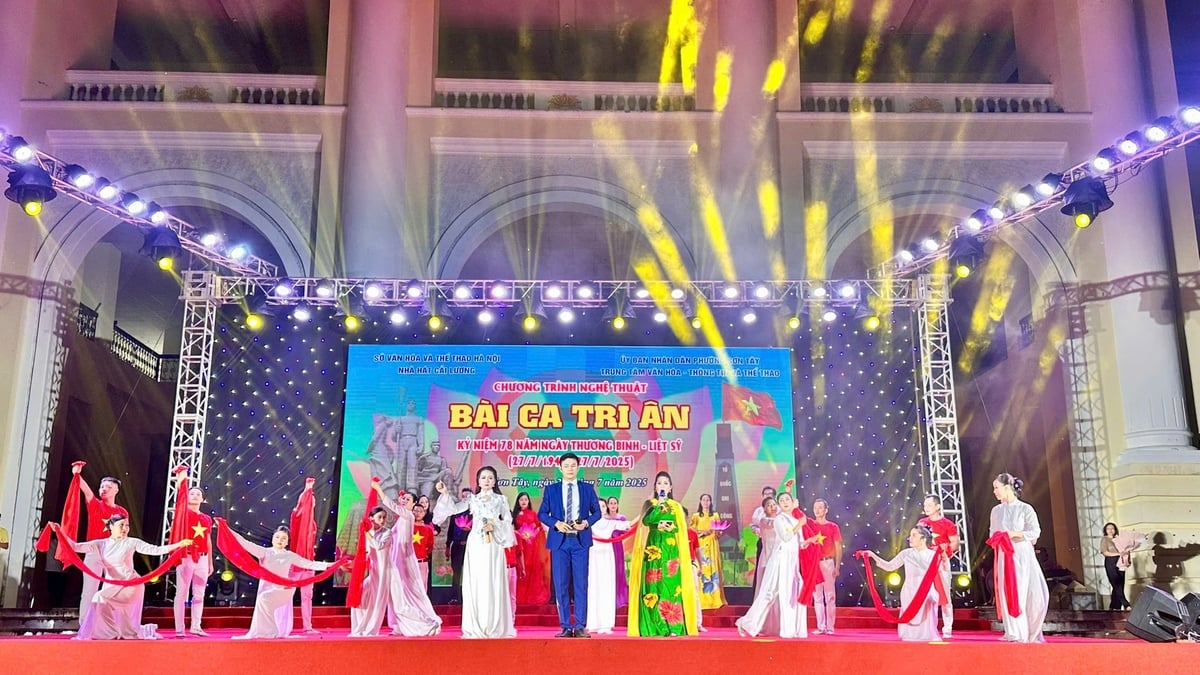















![[Photo] National Assembly Chairman attends the seminar "Building and operating an international financial center and recommendations for Vietnam"](https://vphoto.vietnam.vn/thumb/1200x675/vietnam/resource/IMAGE/2025/7/28/76393436936e457db31ec84433289f72)











































































Comment (0)